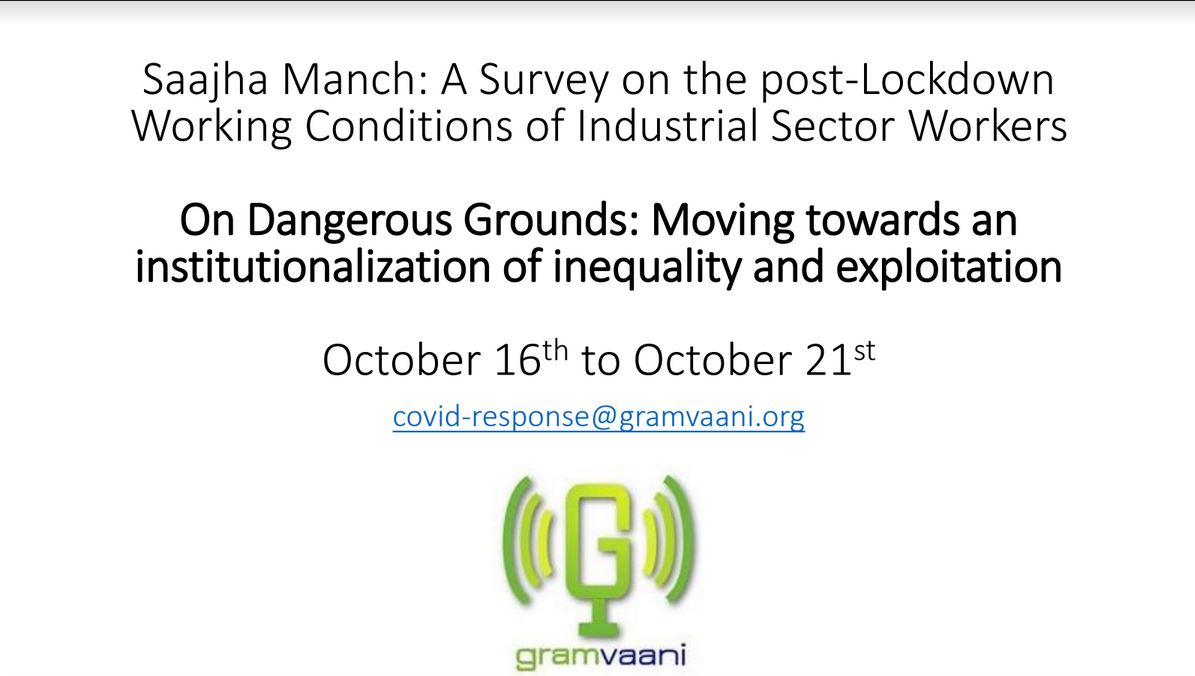We concluded our analysis of the post-lockdown working conditions among industrial sector workers. The findings are sobering, and put together with the changes in the labour code, it looks like we are headed towards an institutionalization of inequality and exploitation in India. The Indian state must change its priorities to impose fairer wage standards, ensure compliance of better working conditions, and improve access to social protection.
Some key points are as follows. Read our article based on this survey, The post-Lockdown State of Labour: Heading Towards an Institutionalization of Exploitation and Inequality, here.
- Companies seem to be in free-fall. In India, and even according to international reports from other countries, sectors like garments have been significantly hit. As a result, work availability has gone down.
- Of the 362 workers who took the survey, 60% reported that they are out of work. Those who are working, report that they are getting erratic work for 3-4 days in a week only and are staring at job insecurity.
- Consequently, earnings have reduced, while at the same time the workload has increased. More work is being demanded from fewer people.
- Whether this is because companies are struggling to meet their bottomline, or because they are using this opportunity of a widely apparent downturn to increase their margins, irrespective of the reasons it is the workers who are getting squeezed even more.
- Overtime compliance remains poor and there is a big shift towards piece-rate work from regular salary based employment.
- Due to immensely discouraging experience with being able to access social security like PF and ESI, workers are losing faith in the social security system. Many workers are preferring to work on piece-rate with cash payments, foregoing PF and ESI contributions, so that they get more cash in hand on an immediate basis. Many companies also seem to be preferring this, possibly because it reduces their costs and compliance overhead too.
- Due to these worsening working conditions, many workers who had come back from their home villages and towns in rural areas, are now going back. Work seems to be harsher and more mercenary than before, social security remains a myth, the laws and bureaucratic procedures offer little protection or redress, and other work and income options also remain elusive. The new labour code it seems will make protection against exploitation more elusive, collective bargaining more difficult, and worker-employer relationships more commoditified. The unconscionable treatment received by migrant workers when the lockdown was imposed, the shaky ability of the state to provide reasonable social protection, and continued apathy towards the rights of workers, points towards an inclination of the state to embrace economic growth at the cost of ensuring better wage standards and holding the industry accountable to meet its obligations towards better working conditions.
An updated version of the survey report containing data from Tamil Nadu is available here.



